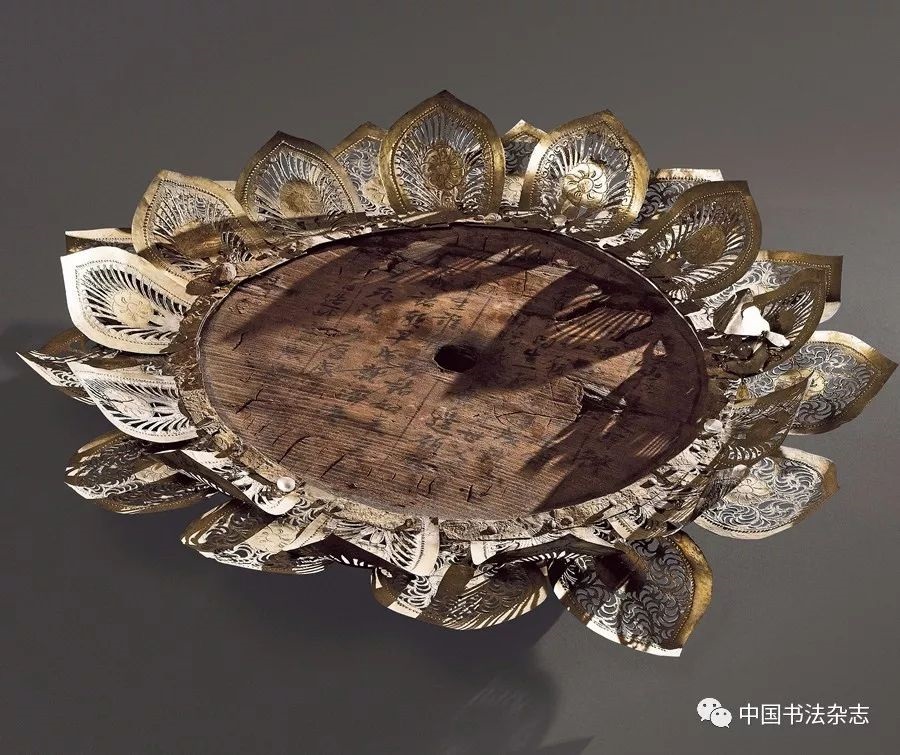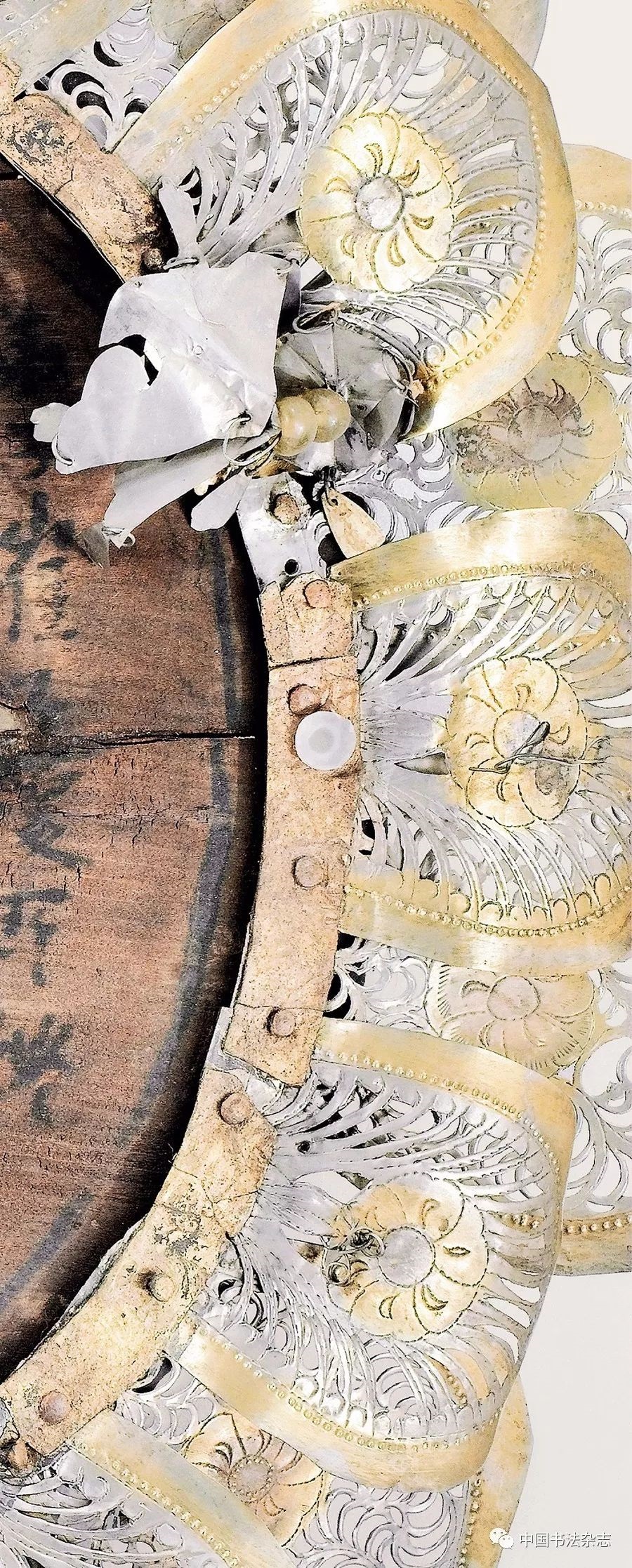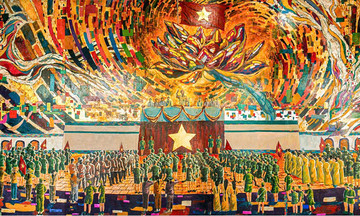The story, related to an ancient artifact, garnered numerous comments when Shanxi News posted it on Weibo in late August, coinciding with Qixi Festival (Chinese Valentine's Day). In 1986, during renovations at Famen Temple in Shaanxi province, China, an archaeological team excavated the area at the base of the temple's pagoda and discovered an underground palace.
A year later, when the palace doors were opened, archaeologists uncovered a Finger Bone Relic of the Buddha along with over 2,000 Tang dynasty artifacts, including a flower-shaped ornament. Upon removing the outer copper layer, they found the inner wooden layer inscribed with a heartfelt message from a craftsman named Cui Qingka.
 |
Ornament from the underground palace. Photo: Shufa Zazhi |
Ornament from the underground palace. Photo: Shufa Zazhi
The inscription, dated 871, reveals Cui Qingka's wish, not for wealth or promotion, but to be reunited with his wife in the afterlife: "Disciple Cui Qingka prays to be with Cao Shi in the next life". He also prayed for his parents' peaceful passing and expressed good wishes for all beings.
The artifact, placed atop the underground palace as a decorative element and a tribute to the Buddha, is primarily made of silver, wood, and copper. Its design blends Buddhist cultural elements with Tang dynasty craftsmanship. The piece is now recognized as a national treasure of China and housed in the Famen Temple Museum.
 |
Silver decorative pattern. Photo: Shufa Zazhi |
Silver decorative pattern. Photo: Shufa Zazhi
This "love letter," discovered after over 1,100 years, has moved many with its sentiment and romance. One Weibo user commented, "After a millennium, his wish must have come true, right?".
Historical records indicate that Famen Temple was named by Emperor Gaozu of Tang (Li Yuan), the founding emperor of the Tang dynasty, who reigned from 618 to 626. Famen Temple was a significant Buddhist site during the Tang dynasty. Following its excavation in 1987, the Finger Bone Relic has been displayed for Buddhist devotees in temples across Thailand, South Korea, Hong Kong, and Taiwan.
Nhu Anh (Shanxi News)












